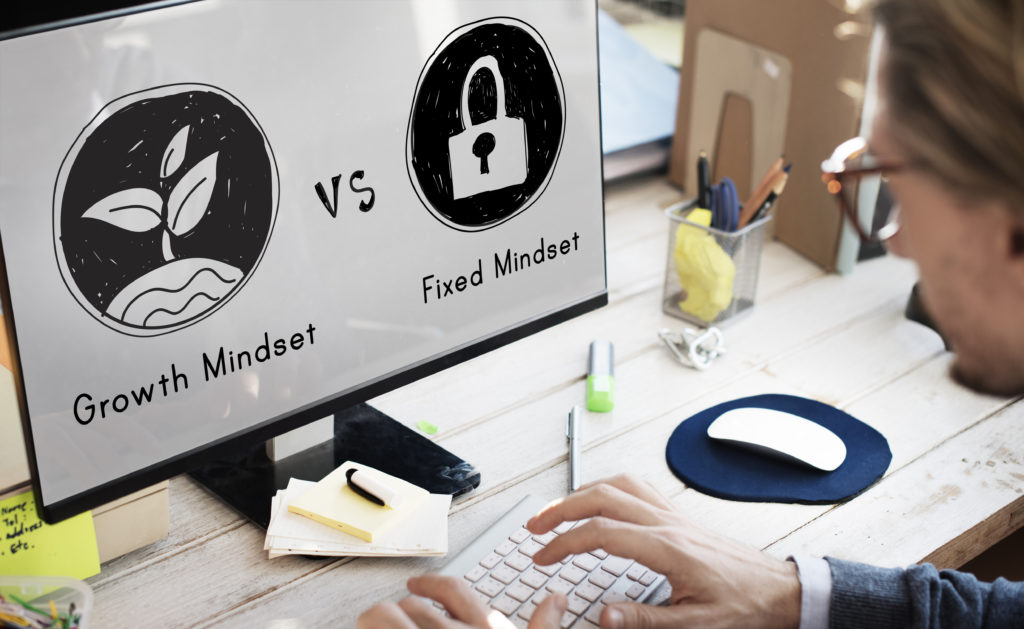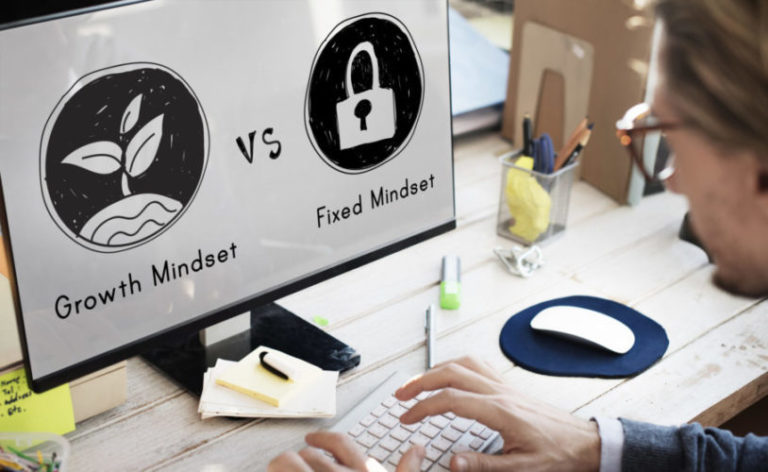
Is Change Really Possible?
WRITTEN BY:
Roxanne Maroney
January 5, 2023
- I am a certain kind of person, and not much can be done to really change.
- No matter what kind of person I am, change is always possible.
- I can do things differently, but the important parts of who I am really don’t change.
- I can always change basic things about the kind of person I am.

Readers who agree with statements 1 and 3 have what they call a “fixed mindset.” This is the mindset that says, “I am who I am and probably won’t change much.” You believe who you are is fixed, and your ability to change is static. You might believe you can get a little better or worse in a few areas, but your basic belief is this is how you are wired. We often hear one, or sometimes both partners say, “this is just the way I am, get used to it.” This is a sad and selfish way of saying “don’t expect me to change.”
Someone with a “fixed mindset” tends to avoid challenges and feels threatened by negative feedback out of a fear of failure, or fear of weakness being exposed.
Readers who agree with statements 2 and 4, tend to have a “growth mindset.” A growth mindset believes your abilities are like muscles that can be developed and strengthened with practice. Let’s face it, good relational skills are hard to learn. Successful friendships, partnerships, family relationships and marriage all take work and effort. With a growth mindset, you are willing to accept challenges and take a chance despite the risk of failure. You don’t become paralyzed by thinking failure is fatal. With a growth mindset you are willing to stretch yourself, take a risk that might be outside your comfort zone, accept feedback, and take a long-term view.
A “fixed mindset” will always limit your growth. Avoiding change, being closed to learning something new or different, resisting input and feedback from others, and protecting yourself from failure only keeps you stuck. In contrast, a “growth mindset” accepts being a beginner when learning a new skill, but knows there is potential of getting better.
Letting go of a “fixed mindset” and adopting a “growth mindset”, especially when struggling, helped us become more flexible, patient and understanding with each other.
Challenge Your Beliefs
Shifting from a “fixed mindset” to a “growth mindset” was difficult, especially when I was convinced I was right. But when I asked myself questions like, “Is there another way to see this?” or “Is this way of thinking even Biblical?” or “am I making an assumption here?” the holes in my perspective became clear. I would often write a narrative in my head and arrive at a conclusion without ever checking it out. I can’t completely stop a thought from popping into my head, but I can stop it from becoming a belief. There’s an old quote attributed to Martin Luther, “You can’t stop birds from flying overhead, but you can stop them from nesting in your hair.”
Values are the important beliefs or standards we live by. The problem becomes when we become judgmental of those who don’t live consistent with these same important beliefs and standards. I made a list of 12 personal values, then asked myself, “is this value from God, or is it negatively influenced by my parents, or someone else?” To my surprise, most of these strong beliefs were from my parents. For example, honesty is a high value for me, and I struggled with anyone who was not honest or secretive. Is honesty a good value? Yes, of course. But I became hypersensitive in this area because my mother rarely told the truth, and my energy and intolerance were directly related to a mom who did not place the same high value on honesty.
I encourage you to consider making a list of your core values … and then ask yourself, “where do these come from?”
When I recognized how my hypersensitivity to dishonesty was connected to my wounds from the past, I learned to interrupt (and derail) my emotional reaction when someone was secretive or not truthful with me. Whenever I allowed my history to lead my thoughts and feelings, my ability to manage my reactivity became limited and minimized.
So is change really possible? The answer is yes! But it takes awareness and intentional work to interrupt self-sabotaging thoughts, recognize false beliefs, and change self-protective behaviors that were learned long ago.




